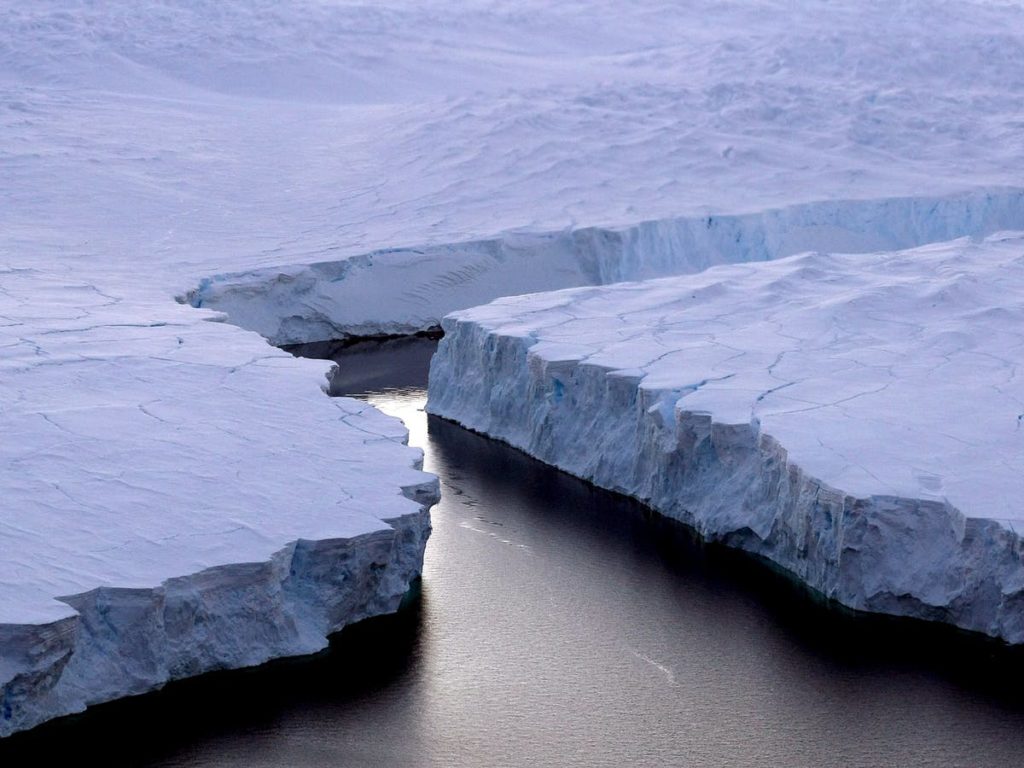If we take no action, our world will see rising sea levels as a result of melting ice caps
With more than half of the world’s freshwater contained in an ice sheet, Antarctica has the potential to cause rising sea levels all across the globe. Because few countries are taking adequate action to solve the problem of Climate Change, Antarctica will soon reach a point where damage is irreversible. Although leaders have signed many documents and countries have made agreements, most nations, especially the United States, are not doing enough to address this problem.
If seeing a rise in tropical storms and wildfires doesn’t scare you enough, then maybe finding out about the situation in Antarctica will be a wake-up call. Antarctica is a whopping 5.5 million square miles, making it larger than Europe. This means that irreversible damage to its ice caps can have global ramifications. Researchers at the Potsdam Institute for Climate Impact Research (PIK) in Germany conducted a study that found if average temperatures rise 7.2 degrees Fahrenheit for a sustained time period, most of the ice in West Antarctica will crumble, leading to a global sea-level rise of 21 feet. The melting of this ice would put cities such as New York, Tokyo, and London underwater. If global temperatures rise by even more than 7.2 degrees, we could see even greater consequences: Researchers at PIK found that Antarctica will be “virtually ice-free (1)” and global sea levels will rise almost 200 feet.
Currently, climate change has led to much warmer water temperatures in the world’s oceans; thus, when the water from the ocean rubs against the ice-caps, the ice-caps begin to melt. For instance, in West Antarctica, 25% of the ice is currently at risk of collapse. But there is a solution–––temporary and long-term. A temporary solution would be for countries to follow detailed plans such as the Paris Climate Accord. So far, 198 countries have signed this resolution, although the US is set to drop out in the next month, which ensures that Earth’s average temperature does not rise by more than 2.7°F. If every country can follow this agreement, we can stall the effects of climate change until a sustainable long-term solution can be finalized. To help achieve the goals outlined in the Paris Agreement, different countries have taken different approaches to stall the effects of climate change. For example, various countries such as Canada and Singapore have implemented a carbon tax to encourage companies to convert to renewable energy. A carbon tax taxes companies based on the amount of CO2 emissions they emit, which will entice companies to limit their carbon emissions.

In the US, climate change can have a drastic impact on some of its largest cities. This is because of the rising sea levels that may drown certain cities. Right now, New Orleans is already sinking and some parts of the city are 15 feet below sea level. With the increase of tropical storms and rising sea levels, if we do nothing, the impacts of climate change will only worsen. In Miami, $6.4 billion worth of property is at risk of chronic flooding in the next 30 years. In Boston, 1 out of every 6 properties may be underwater by the year 2100. These issues of flooding are prevalent in coastal cities across the country and every governing body and entity on this planet must strive to use renewable energy to ensure that cities such as Boston are still standing in the next 100 years.
– Rohan Badani
References
- Specktor, B. (2020, September 29). Antarctica could melt “irreversibly” due to climate change, study warns. Livescience.Com; Live Science. https://www.livescience.com/antarctica-ice-free-climate-change.html
- Global warming may lead to practically irreversible Antarctic melting. (2020, September 24). Science News. https://www.sciencenews.org/article/global-warming-practically-irreversible-antarctic-melting
- Aria Bendix. (2020, March 17). 8 American cities that could disappear by 2100 – Business Insider. Business Insider; Business Insider. https://www.businessinsider.com/american-cities-disappear-sea-level-rise-2100-2019-3#new-orleans-louisiana-is-already-sinking-1
Images

